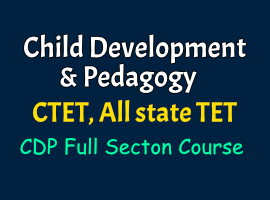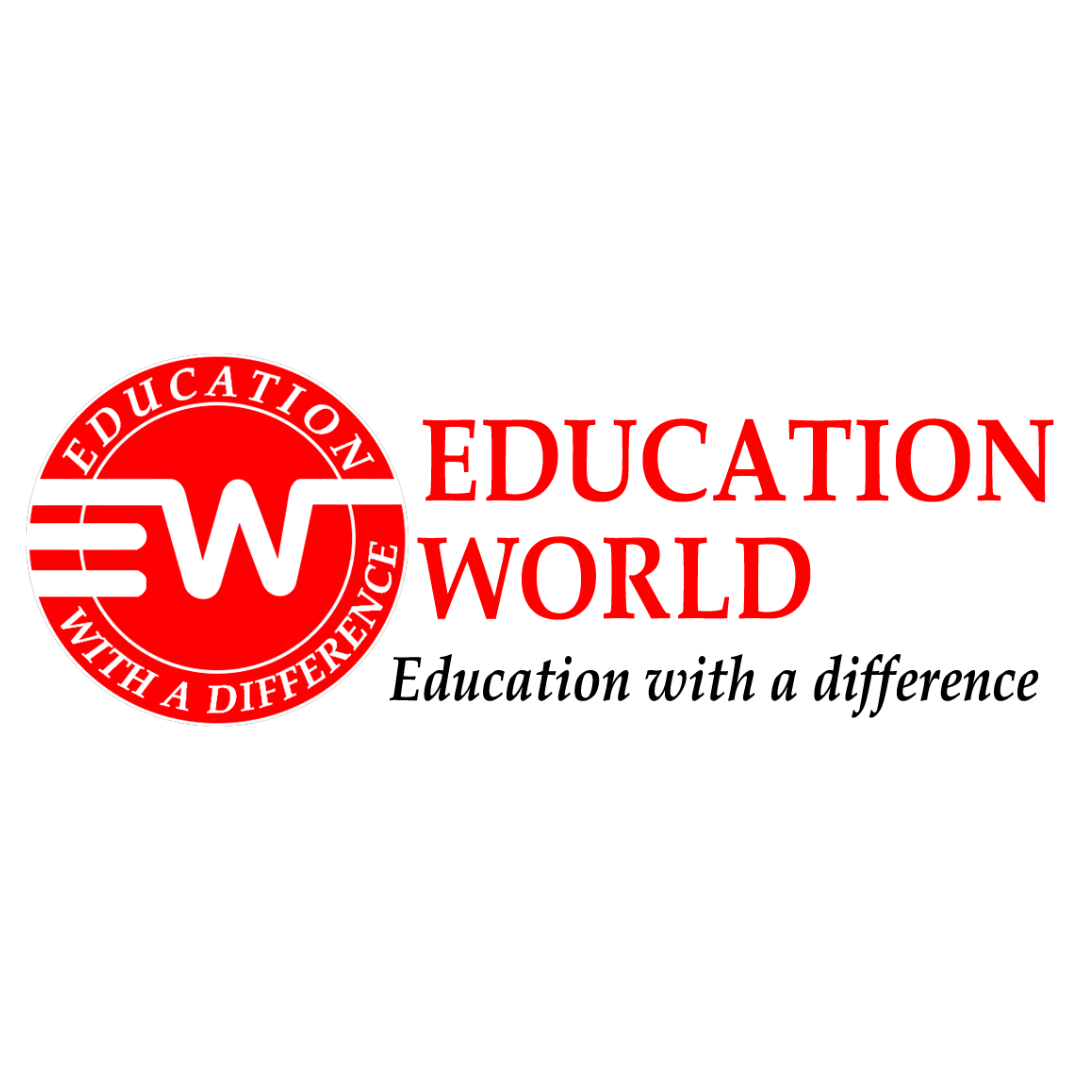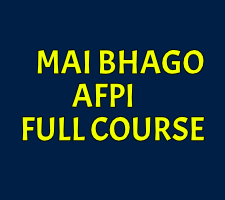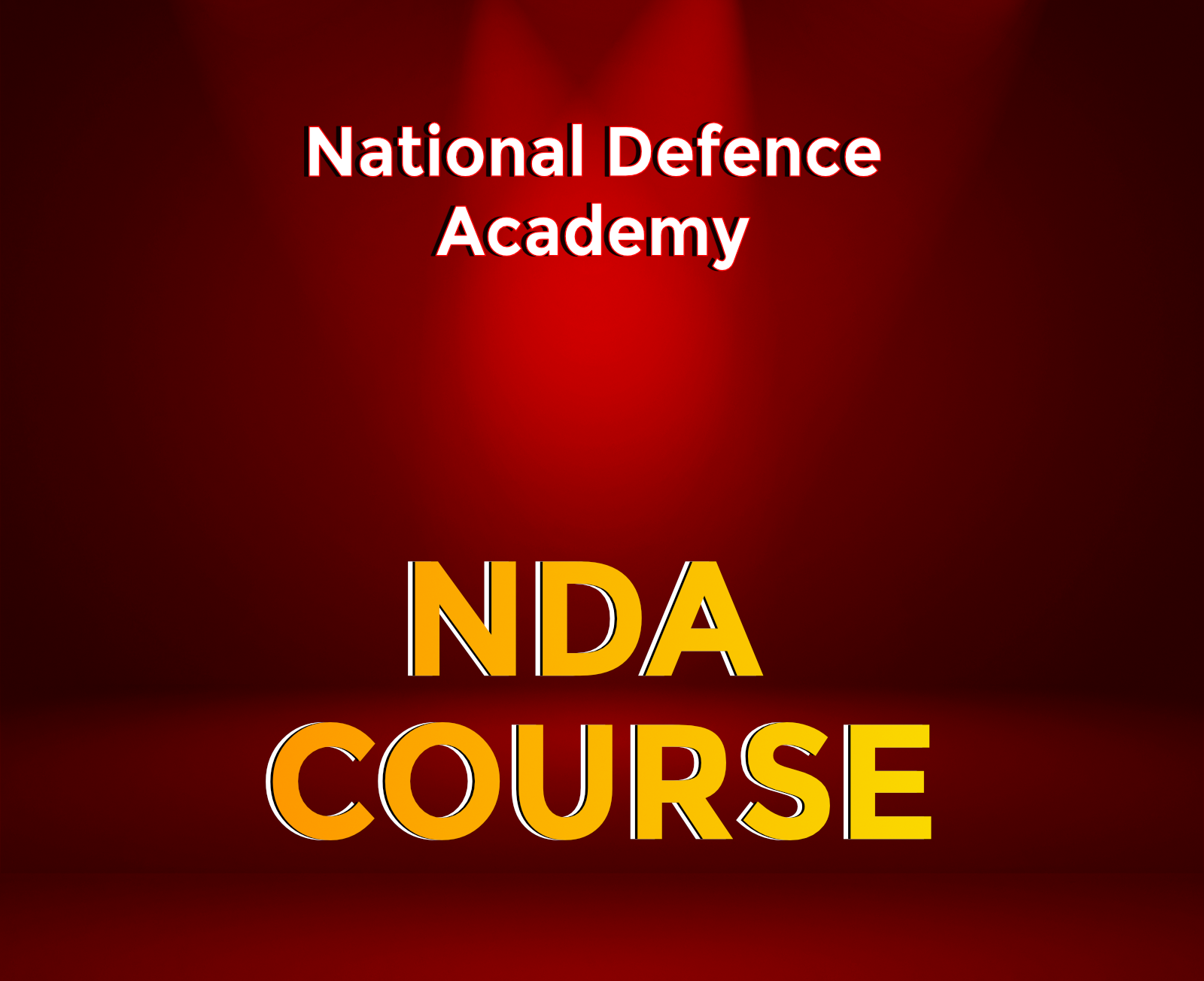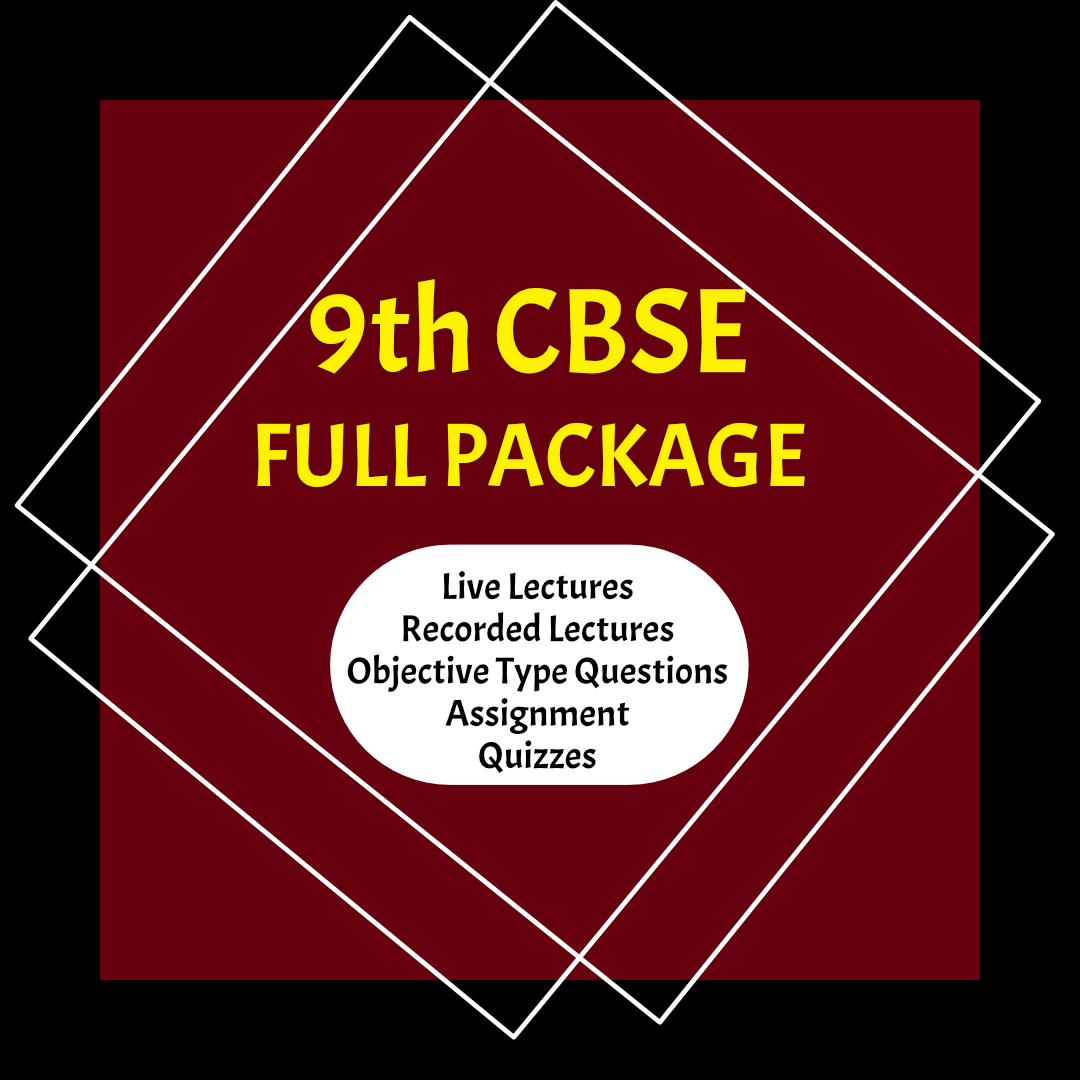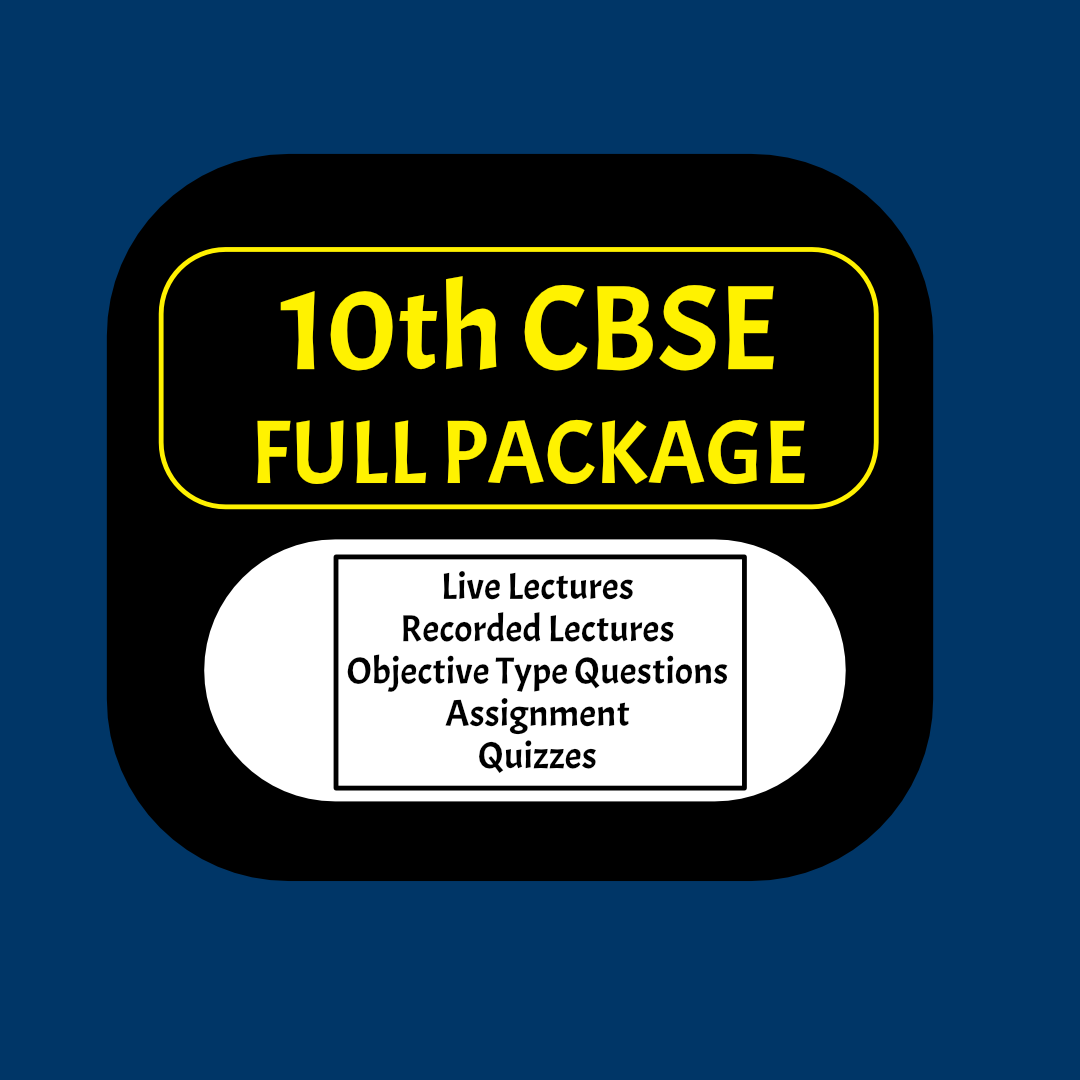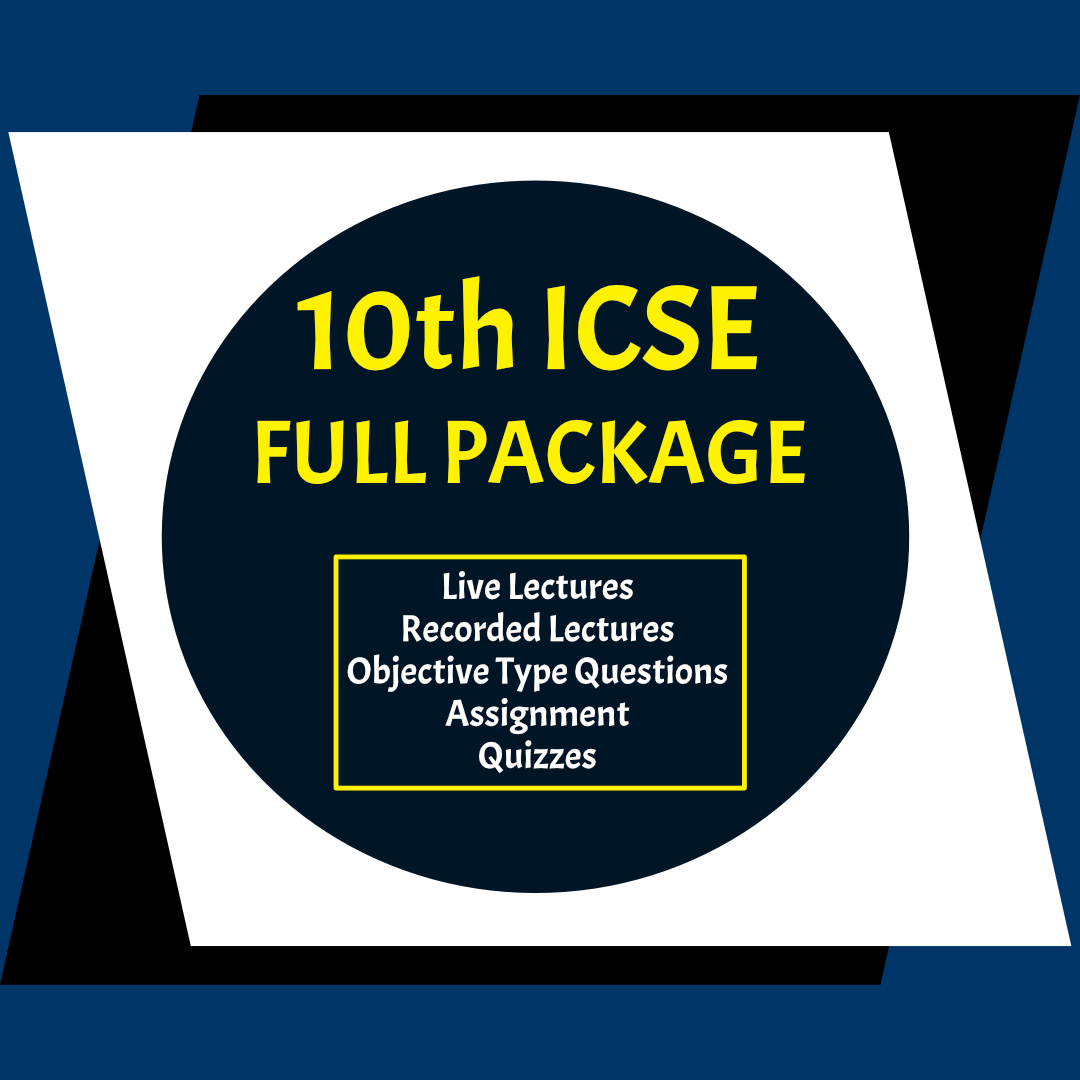|
|
Concept of Development and its Relationship with Learning - Lecture 1
In this lecture we will study the concept of Development and its relationship with learning. By watching this video, you will learn:
The concept of Development and its features?
Types of Development: Physical Development, Cognitive development, Social and Environmental Development, Language Development and Moral Development.
Stages of Child Development: Stages of Infancy, Pre-schoolers, School age children and Adolescents.
The concept of the Growth and difference between Growth and Development.
The factors responsible for the growth and development of the students.
The concept of learning and its relationship development.
|
|
26min
|
|
|
Principles of Child Development : Lecture 2
In this lecture we will study the Principles of the Child Development. By watching this video, you will learn:
The concept of the child development and the elements of the child development.
The principal features of the pattern and process of growth and development and the principles of the child development.
Concept of Cephalocaudal and Proximodistal Sequence of growth and development.
The educational importance of the Principles of Child Development.
The factors influencing the Child Development from the ongoing process of birth until reaching the adulthood: Internal factors as well as External factors.
|
|
29min
|
|
|
Influence of Heredity and Environment - Lecture 3
In this lecture we will study the Influence of Heredity and Development on the learning process and behavioral tendencies of the child. By watching this video, you will learn:
The concept of the Heredity.
The principles of Heredity.
The role of the heredity and the environment in the growth and development of the child.
The physical traits and the mental traits responsible for the growth and development of the child.
The laws of the heredity: Like produces like, only certain traits are transformed and convergence of the two lives.
Effects of the Heredity on Physical Characteristics, Intelligence and Character.
Importance or Significance of Heredity for education and in teaching-learning process.
The concept of the environment and the effects of the environment on physical dissimilarities, superiority of races, personality, mental growth and multiple effects on growing children.
|
|
19min
|
|
|
Socialisation Process - Lecture 4
In this lecture we will learn the Socialization process and its role in the growth and development of the child. By watching this video, you will learn:
Concept of socialization.
Theories of Socialization: Looking Glass Self Theory by Charles Horton Cooley, Social Self Theory by George Herbert Mead, Ecological Systems Theory by Bronfenbrenner and Theory of Mind.
Relationship between Socialization and Education of the child.
Types of Socialization: Primary and Secondary.
The factors affecting socialization consisting of Social Interaction, Identification and Language.
Stages of the Socialization by Eric Erikson.
Agents of Socialization.
Role of Play in the Socialisation and the Historical aspects of Play in the Socialisation and social development of children.
|
|
27min
|
|
|
Piaget, Kohlberg and Vygotsky - Lecture 5
In this lecture we will learn the Piaget theory of Cognitive Development, Kohlberg Theory of Moral Development and Vygotsky theory of Socio-Cultural Development. By watching this video, you will learn:
Piaget’ Theory of Cognitive Development: Schemas; Stages of development: Assimilation, Accommodation and Equilibration or Disequilibration; Stages of Development: Sensori-Motor Stage, Pre-Operational Stage, Concrete operational Stage and Formal Operational Stage.
Kohlberg’s theory of Moral development: Levels of Moral development: Pre-Conventional, Conventional and Post-Conventional; Six Stages of Development.
Vygotsky’s theory of Socio-Cultural development: Concept of Zone of Proximal development, Private Speech and Make-Believe Play.
|
|
20min
|
|
|
Concept of Child Centred and Progressive Education - Lecture 6
In this lecture we will learn the Child-centered Learning and its Characteristics and Progressive Education. By watching this video, you will learn:
Concept of Child-Centered Learning and characteristics.
Principles of Child-Centered Learning.
Concept of Progressive Education and History.
Theories of Progressive Education: Locke, Jean Jacques Rousseau’s Theory of Progressive Education, Froebel and John Dewey’s Theory of Progressive Education.
Importance of progressive Education.
Characteristics and Types of Progressive Education: Humanistic, Constructivist and Montessori School.
Differences between Traditional and Progressive Education.
|
|
21min
|
|
|
Construct of Intelligence - Lecture 7
In this lecture we will learn the Construct of Intelligence. By watching this video you will learn:
Concept of Construct of Intelligence and its three basic functions: Learning, recognizing problems and Solving problems.
Uni-Factory theory of Intelligence by Alfred Binet and Terman; Two-factory Theory of ‘g-general factor’ and ‘s-special intelligence’ by Charles Spearman. Seven Primary Mental Abilities Theory by Louis Thurstone. Three stratum Theory or Fluid and Crystallized Intelligence Theory by Raymond Cattell and John Horn.
|
|
16min
|
|
|
Multi Dimensional Intelligence - Lecture 8
In this lecture, we will learn the Multiple Intelligence Theory. By watching this video, you will learn:
Multiple Intelligence Theory by Howard Gardner consisting of types of Intelligence.
Robert Sternberg (Process Oriented Theory) (Triarchic Theory of Intelligence)
Construct of Intelligence and Multi-Dimensional Intelligence: Thurstone Group Factor theory given by Psychologist Louis L Thurstone (Nine Primary Abilities).
Guilford’s Tri-Dimensional Theory given by JP Guilford.
Multiple Factor theory given by Edward Thorndike.
Five Mental Abilities Theory given by George Kelly.
Features of Intelligence.
Measurement of Intelligence Tests: Stanford-Binet Intelligence test and Wechsler Intelligence test.
|
|
18min
|
|
|
Language and Thought - Lecture 9
In this lecture, we will learn the concept of Language and Thought. By watching this video, you will learn:
Concept of Language and its features.
Elements of Language: Phonology, Semantics, Grammar and Pragmatics.
Factors affecting language development.
Importance of language.
Theories of language development: Language Acquisition and environmental Theories by BF Skinner.
Nativist theory by Noam Chomsky.
Stages of Language Development.
Concept of Thought and Features of thought.
Language and thought are independent.
Sapir-Whorf Hypothesis: Linguistic determinism and Linguistic relativity.
Elements of Thoughts: Purpose, question at issue, Information, Interpretation and Inference, Concepts, Assumptions, implications and consequences and point of views.
|
|
27min
|
|
|
Gender Issues in Social Construct - Lecture 10
In this lecture, we will learn gender issues in social construct. By watching this video, you will learn:
Evolution of Gender as a social construct, Social Construction of Gender.
Different types of Gender Roles, Gender Socialisation, Gender Stereotypes, Gender Discrimination.
Gender Bias in Schools: Gender biases prevailing in Curriculum and Pedagogy and their effects. Gender Bias in Curriculum.
Education as a method for reducing gender bias.
How do we avoid Gender Stereotypes in school?
Gender Responsive pedagogy.
|
|
24min
|
|
|
Individual Differences Among Learners - Lecture 11
In this lecture, we will learn Individual Differences among the learners. By watching this video, you will learn:
Meaning of individual learners.
Types of Individual Differences: Inherited: Physical, Mental and Temperamental, Acquired: Social, Cultural, Educational and Emotional.
Understanding differences: Diversity of language, culture, community and religion, Gender, Family, Emotion, Physical Differences, Attitude, Personality, Aptitude, Intelligence and acquisition of Core skills.
|
|
34min
|
|
|
Evaluation of Learning - Lecture 12
In this lecture, we will learn about Evaluation of Learning. By watching this video, you will learn:
Concept of Evaluation, Assessment and Measurement
Differences between the Evaluation and the Assessment.
Methods of Evaluation: Norm referenced evaluation and Criterion referenced evaluation.
Necessity of evaluation of education in schools.
Types of assessment: Formative assessment and Summative Assessment.
Difference between Assessment for Learning and Assessment of Learning and Assessment as Learning.
Concept of School based assessment.
Continuous and Comprehensive Evaluation: Perspective of Continuous and Comprehensive Evaluation, Scholastic and Co-scholastic domains and actual practice.
|
|
22min
|
|
|
Evaluation of Achievement and Formation of Questions - Lecture 13
In this lecture, we will learn about the Evaluation of achievement and formation of questions. By watching this video, you will learn:
Meaning of the achievement of the learner. Factors governing the achievement of learner: Bio-social, Affective and environmental.
Evaluate achievement by aligning to learning outcomes.
Concept of Diagnostic Tests: Qualities of diagnostic tests: Validity and Reliability. Validity: Content, Criterion and Construct. Reliability: Stability and Alternate form.
Types of Assessment Tasks. Formulating Appropriate Questions. Assessing Readiness Levels of Learners: Readiness to Learn. What can be assessed: Readiness, Interest and Learning Profile.
Enhancing Learning and Critical Thinking in the classroom. 6 Keys to Critical Thinking.
Assessing the achievement of the learner.
|
|
28min
|
|
|
Inclusive Education and Addressing Children from Diverse Backgrounds - Lecture 14
In this lecture we will learn about Inclusive Education and addressing children from diverse backgrounds. By watching this video, you will learn:
Concept of Inclusive education and history of inclusive education in India.
Implications of Inclusive Education.
Principles of Inclusive Education and purposes and need of inclusive education.
Understanding the children with special needs.
Learners from diverse backgrounds, Disadvantaged and Deprived Learners.
Different types of methods of Inclusion: Improvement of pedagogy and improvement in language in instruction.
|
|
18min
|
|
|
Identifying and Addressing Disabled and Learning Disability Children - Lecture 15
In this lecture, we will learn about Identifying and addressing disabled and learning disability children. By watching this video, you will learn:
Meaning of disability and kinds of impairments.
Methods of identifying and addressing disabled learners: Visually disabled, aurally disabled, physically disabled.
Language and other learning disabled: Speaking, Listening, Reading, Writing, Language, Logical and mathematical Ability, motor abilities and intellectually disabled.
Different degrees of intellectually disabled: mild, Moderate, severe and Profound.
Addressing the intellectual disability.
|
|
16min
|
|
|
Identifying and Addressing Talented, Creative and Specially Abled Learners - Lecture 16
In this video, we will learn about Identifying and Addressing the talented, creative and special abled children. By watching this video, you will learn:
Introduction of specially abled children.
Characteristics of Gifted and Talented learners: indicators of mathematical giftedness and indicators of scientific giftedness.
Level of ability of gifted and talented children.
Characteristics of creative learners: Suggested by educational psychologist EP Torrance: Fluency, Flexibility, originality and Elaboration.
Considerations in identification of gifted, talented and creative learners.
Differentiating Model of giftedness and Talent by Gagne.
Addressing specially abled learners in an inclusive classroom: Ability grouping, Pedagogy strategies, changing the learning environment, differentiating content, differentiating processes, differentiating products.
|
|
20min
|
|
|
Thinking and Learning in Children - Lecture 17
In this video, we will learn about How Children Learn and Think. By watching this video, you will learn:
How children think and learn.
Basis of Thinking Processes in children: Manifestation, imagination, Concepts, Experience, Interest, Imitation and Logic and Reasoning. Reasoning: Inductive and Deductive.
Steps to improve the thinking in the children.
Theories of learning in children: Trial and Error theory by Edward Thorndike: Law of readiness, law of Exercise and law of effect.
Children’s failure in school.
Solutions to tackle with the children in case of failure and how to avoid failure.
|
|
18min
|
|
|
Basic Process of Teaching and Learning - Lecture 18
In this video, we will learn about Basic processes of teaching and learning. By watching this video, you will learn:
Meaning and the concept of Teaching.
Different teaching skills given by different educationists.
The process of teaching and learning: Defining the purpose, analyzing the problem, gathering the data, motivation and reinforcement, stimulation and revision and practice.
Methods of Teaching and Learning: telling method, project method, visual method and mental method.
Strategies of Teaching: Autocratic Teaching strategy: Story telling method, lecture method, demonstration method and tutorial method; Democratic teaching strategy: Discussion method, heuristic method, discovery method, project method, brain storming method and role-playing method.
Concept of Micro teaching and process of micro teaching.
|
|
23min
|
|
|
Child as a Problem Solver & Scientific Investigator - Lecture 19
In this video, we will learn about Child as a problem solver and as a scientific investigator. By watching this video, you will learn:
Concept of problem Solving and its elements: problem, target and steps towards target.
Steps to be followed in problem-solving.
Types of problems: Ill-structured problem and Well-structured problems.
Strategies to be adopted during the classroom for problem solving.
Child as a problem solver: Traits to be developed in a child as a problem-solver.
Child as a scientific investigator: traits to be developed to make a child as a scientific investigator.
|
|
13min
|
|
|
Alternative Conceptions of Learning in Children - Lecture 20
Concept of Learning and its features.
Types of Learning: Formal and informal learning.
Alternative conceptions of learning: Behaviorist and Cognitive theories of learning.
Thorndike’s Theory of trial-and-error learning and educational importance of the theory.
Education importance of Classical Conditioning of Experiential learning by Karl Rogers.
Classical Conditioning Theory of Pavlov and educational Importance of classical conditioning theory.
Conditioning theory of BF Skinner and its educational importance.
Insight Theory of Kohler.
Lewin’s Field Theory of Learning.
Social Learning theory by Bandura and its educational importance.
Bloom’s Revised Taxonomy of Cognitive Learning.
|
|
34min
|
|
|
Cognition and Emotion - Lecture 21
In this lecture, we will learn about Cognition and Emotion. By watching this video, you will learn:
Concept of Cognition and its components: Perception, Attention, Memory, Thought, Language and Learning.
Cognitive Development in Children: Four stages of Cognitive development given by Piaget: Sensori-motor stage, pre-operational stage, Concrete Operational Stage and Formal Operational Stage.
Concept of Emotions. Nature of Emotions. Types of Emotions. Features of Emotions.
Components/ Factors of Emotions: Physical Change, Changes in Behavior and emotional expressions, emotional feelings.
Importance of emotions in education.
|
|
13min
|
|
|
Motivation and Learning Lecture 22
In this lecture, we will learn about Motivation and Learning. By watching this video, you will learn:
Concept of Motivation.
Types of Motivation: Positive Motivation and negative Motivation; Intrinsic and Extrinsic Motivation.
Characteristics of Motivation.
Principles of Motivation in Learning.
Maslow’s Hierarchy of Needs: Physiological needs, Security Needs, Social Needs, Self-Esteem Needs and Self-Actualization Needs.
Suggestions for application to education.
Motivation and Learning.
Importance of motivation for teachers.
Important suggestions to keep students motivated for learning.
|
|
17min
|
|
|
National Curriculum Framework 2005 - Lecture 23
In this lecture, we will learn about National Curriculum framework. By watching this video, you will learn:
Introduction to National Curriculum Framework, 2005
What and How to children?
Implications of Curriculum and five guiding principles for curriculum development.
Areas of national Curriculum Framework: Perspective, learning and Knowledge, Curriculum areas, school stages and assessment and systemic reform.
5 key goals of National Curriculum framework.
|
|
14min
|
|
|
MCQs Lecture 1 - Development And Its Relation With Learning
In this lecture we will study the MCQ’s on concept of Development and its relationship with learning. By watching this video, you will learn:
The concept of Development and its features.
Types of Development: Physical Development, Cognitive development, Social and Environmental Development, Language Development and Moral Development.
Stages of Child Development: Stages of Infancy, Pre-schoolers, School age children and Adolescents.
The concept of the Growth and difference between Growth and Development.
The factors responsible for the growth and development of the students.
The concept of learning and its relationship development.
|
|
17min
|
|
|
MCQs Lecture 2 - Principles Of Child Development
In this lecture we will study the MCQ’s of Principles of the Child Development. By watching this video, you will learn:
The concept of the child development and the elements of the child development.
The principal features of the pattern and process of growth and development and the principles of the child development.
Concept of Cephalocaudal and Proximodistal Sequence of growth and development.
The educational importance of the Principles of Child Development.
The factors influencing the Child Development from the ongoing process of birth until reaching the adulthood: Internal factors as well as External factors.
|
|
20min
|
|
|
MCQs Lecture 3 - Influence Of Heredity And Environment
In this lecture we will practice MCQ’s on the Influence of Heredity and Development on the learning process and behavioral tendencies of the child. By watching this video, you will learn:
The concept of the Heredity.
The principles of Heredity.
The role of the heredity and the environment in the growth and development of the child.
The physical traits and the mental traits responsible for the growth and development of the child.
The laws of the heredity: Like produces like, only certain traits are transformed and convergence of the two lives.
Effects of the Heredity on Physical Characteristics, Intelligence and Character.
Importance or Significance of Heredity for education and in teaching-learning process.
The concept of the environment and the effects of the environment on physical dissimilarities, superiority of races, personality, mental growth and multiple effects on growing children.
|
|
21min
|
|
|
MCQs Lecture 4 - Socialisation Process
In this lecture we will practice MCQ’s on the Socialization process and its role in the growth and development of the child. By watching this video, you will learn:
Concept of socialization.
Theories of Socialization: Looking Glass Self Theory by Charles Horton Cooley, Social Self Theory by George Herbert Mead, Ecological Systems Theory by Bronfenbrenner and Theory of Mind.
Relationship between Socialization and Education of the child.
Types of Socialization: Primary and Secondary.
The factors affecting socialization consisting of Social Interaction, Identification and Language.
Stages of the Socialization by Eric Erikson.
Agents of Socialization.
Role of Play in the Socialisation and the Historical aspects of Play in the Socialisation and social development of children.
|
|
15min
|
|
|
MCQs Lecture 5 - Piaget, Kohlberg And Vygotsky
In this lecture we will practice MCQ’s on the Piaget theory of Cognitive Development, Kohlberg Theory of Moral Development and Vygotsky theory of Socio-Cultural Development. By watching this video, you will learn:
Piaget’ Theory of Cognitive Development: Schemas; Stages of development: Assimilation, Accommodation and Equilibration or Disequilibration; Stages of Development: Sensori-Motor Stage, Pre-Operational Stage, Concrete operational Stage and Formal Operational Stage.
Kohlberg’s theory of Moral development: Levels of Moral development: Pre-Conventional, Conventional and Post-Conventional; Six Stages of Development.
Vygotsky’s theory of Socio-Cultural development: Concept of Zone of Proximal development, Private Speech and Make-Believe Play.
|
|
22min
|
|
|
MCQs Lecture 6 - Child Centered And Progressive Education
In this lecture we will practice MCQ’s on Child-centered Learning and its Characteristics and Progressive Education. By watching this video, you will learn:
Concept of Child-Centered Learning and characteristics.
Principles of Child-Centered Learning.
Concept of Progressive Education and History.
Theories of Progressive Education: Locke, Jean Jacques Rousseau’s Theory of Progressive Education, Froebel and John Dewey’s Theory of Progressive Education.
Importance of progressive Education.
Characteristics and Types of Progressive Education: Humanistic, Constructivist and Montessori School.
Differences between Traditional and Progressive Education.
|
|
20min
|
|
|
MCQs Lecture 7 - Construct Of Intelligence And Multi-Dimensional Intelligence
In this lecture, we will practice MCQ’s on Construct on Intelligence and Multiple Intelligence Theory. By watching this video, you will learn:
MCQ’s on Concept of Intelligence
Multiple Intelligence Theory by Howard Gardner consisting of types of Intelligence.
Robert Sternberg (Process Oriented Theory) (Triarchic Theory of Intelligence)
Construct of Intelligence and Multi-Dimensional Intelligence: Thurstone Group Factor theory given by Psychologist Louis L Thurstone (Nine Primary Abilities).
Guilford’s Tri-Dimensional Theory given by JP Guilford.
Multiple Factor theory given by Edward Thorndike.
Five Mental Abilities Theory given by George Kelly.
Features of Intelligence.
Measurement of Intelligence Tests: Stanford-Binet Intelligence test and Wechsler Intelligence test.
|
|
21min
|
|
|
MCQs Lecture 8 - Language And Thoughts
In this lecture, we will practice MCQ’s on the concept of Language and Thought. By watching this video, you will learn:
Concept of Language and its features.
Elements of Language: Phonology, Semantics, Grammar and Pragmatics.
Factors affecting language development.
Importance of language.
Theories of language development: Language Acquisition and environmental Theories by BF Skinner.
Nativist theory by Noam Chomsky.
Stages of Language Development.
Concept of Thought and Features of thought.
Language and thought are independent.
Sapir-Whorf Hypothesis: Linguistic determinism and Linguistic relativity.
Elements of Thoughts: Purpose, question at issue, Information, Interpretation and Inference, Concepts, Assumptions, implications and consequences and point of views.
|
|
16min
|
|
|
MCQs Lecture 9 - Gender Issues In Social Construct
In this lecture, we will practice MCQ’s on gender issues in social construct. By watching this video, you will learn:
Evolution of Gender as a social construct, Social Construction of Gender.
Different types of Gender Roles, Gender Socialisation, Gender Stereotypes, Gender Discrimination.
Gender Bias in Schools: Gender biases prevailing in Curriculum and Pedagogy and their effects. Gender Bias in Curriculum.
Education as a method for reducing gender bias.
How do we avoid Gender Stereotypes in school?
Gender Responsive pedagogy.
|
|
15min
|
|
|
MCQs Lecture 10 - Evaluation Of Learning
In this lecture, we will practice MCQ’s on Evaluation of Learning. By watching this video, you will learn:
Concept of Evaluation, Assessment and Measurement
Differences between the Evaluation and the Assessment.
Methods of Evaluation: Norm referenced evaluation and Criterion referenced evaluation.
Necessity of evaluation of education in schools.
Types of assessment: Formative assessment and Summative Assessment.
Difference between Assessment for Learning and Assessment of Learning and Assessment as Learning.
Concept of School based assessment.
Continuous and Comprehensive Evaluation: Perspective of Continuous and Comprehensive Evaluation, Scholastic and Co-scholastic domains and actual practice.
|
|
15min
|
|
|
MCQs Lecture 11 - Evaluation Of Achievement And Formation Of Questions
In this lecture, we will practice MCQ’s on the Evaluation of achievement and formation of questions. By watching this video, you will learn:
Meaning of the achievement of the learner. Factors governing the achievement of learner: Bio-social, Affective and environmental.
Evaluate achievement by aligning to learning outcomes.
Concept of Diagnostic Tests: Qualities of diagnostic tests: Validity and Reliability. Validity: Content, Criterion and Construct. Reliability: Stability and Alternate form.
Types of Assessment Tasks. Formulating Appropriate Questions. Assessing Readiness Levels of Learners: Readiness to Learn. What can be assessed: Readiness, Interest and Learning Profile.
Enhancing Learning and Critical Thinking in the classroom. 6 Keys to Critical Thinking.
Assessing the achievement of the learner.
|
|
13min
|
|
|
MCQs Lecture 12 - Inclusive Education & Addressing Children From Diverse Background
In this lecture we will practice MCQ’s on Inclusive Education and addressing children from diverse backgrounds. By watching this video, you will learn:
Concept of Inclusive education and history of inclusive education in India.
Implications of Inclusive Education.
Principles of Inclusive Education and purposes and need of inclusive education.
Understanding the children with special needs.
Learners from diverse backgrounds, Disadvantaged and Deprived Learners.
Different types of methods of Inclusion: Improvement of pedagogy and improvement in language in instruction.
|
|
16min
|
|
|
MCQs Lecture 13 - Identifying And Addressing Disabled And Learning Disability Children
In this lecture, we will practice MCQ’s on Identifying and addressing disabled and learning disability children. By watching this video, you will learn:
Meaning of disability and kinds of impairments.
Methods of identifying and addressing disabled learners: Visually disabled, aurally disabled, physically disabled.
Language and other learning disabled: Speaking, Listening, Reading, Writing, Language, Logical and mathematical Ability, motor abilities and intellectually disabled.
Different degrees of intellectually disabled: mild, Moderate, severe and Profound.
Addressing the intellectual disability.
|
|
16min
|
|
|
MCQs Lecture 14 - Identifying And Addressing The Talented, Creative And Specially Abled Learners
In this video, we will practice MCQ’s on Identifying and Addressing the talented, creative and special abled children. By watching this video, you will learn:
Introduction of specially abled children.
Characteristics of Gifted and Talented learners: indicators of mathematical giftedness and indicators of scientific giftedness.
Level of ability of gifted and talented children.
Characteristics of creative learners: Suggested by educational psychologist EP Torrance: Fluency, Flexibility, originality and Elaboration.
Considerations in identification of gifted, talented and creative learners.
Differentiating Model of giftedness and Talent by Gagne.
Addressing specially abled learners in an inclusive classroom: Ability grouping, Pedagogy strategies, changing the learning environment, differentiating content, differentiating processes, differentiating products.
|
|
15min
|
|
|
MCQs Lecture 15 - Thinking And Learning In Children
In this video, we will practice MCQ’s on How Children Learn and Think. By watching this video, you will learn:
How children think and learn.
Basis of Thinking Processes in children: Manifestation, imagination, Concepts, Experience, Interest, Imitation and Logic and Reasoning. Reasoning: Inductive and Deductive.
Steps to improve the thinking in the children.
Theories of learning in children: Trial and Error theory by Edward Thorndike: Law of readiness, law of Exercise and law of effect.
Children’s failure in school.
Solutions to tackle with the children in case of failure and how to avoid failure.
|
|
18min
|
|
|
MCQs Lecture 16 - Basic Process Of Teaching And Learning
In this video, we will practice MCQ’s on Basic processes of teaching and learning. By watching this video, you will learn:
Meaning and the concept of Teaching.
Different teaching skills given by different educationists.
The process of teaching and learning: Defining the purpose, analyzing the problem, gathering the data, motivation and reinforcement, stimulation and revision and practice.
Methods of Teaching and Learning: telling method, project method, visual method and mental method.
Strategies of Teaching: Autocratic Teaching strategy: Story telling method, lecture method, demonstration method and tutorial method; Democratic teaching strategy: Discussion method, heuristic method, discovery method, project method, brain storming method and role-playing method.
Concept of Micro teaching and process of micro teaching.
|
|
16min
|
|
|
MCQs Lecture 17 - Child As A Problem Solver And Scientific Investigator
In this video, we will practice MCQ’s on Child as a problem solver and as a scientific investigator. By watching this video, you will learn:
Concept of problem Solving and its elements: problem, target and steps towards target.
Steps to be followed in problem-solving.
Types of problems: Ill-structured problem and Well-structured problems.
Strategies to be adopted during the classroom for problem solving.
Child as a problem solver: Traits to be developed in a child as a problem-solver.
Child as a scientific investigator: traits to be developed to make a child as a scientific investigator.
|
|
10min
|
|
|
MCQs Lecture 18 - Alternative Conceptions Of Learning
In this lecture, we will practice MCQ’s on Alternative Conceptions of Learning in the Children. By watching this video, you will learn:
Concept of Learning and its features.
Types of Learning: Formal and informal learning.
Alternative conceptions of learning: Behaviorist and Cognitive theories of learning.
Thorndike’s Theory of trial-and-error learning and educational importance of the theory.
Education importance of Classical Conditioning of Experiential learning by Karl Rogers.
Classical Conditioning Theory of Pavlov and educational Importance of classical conditioning theory.
Conditioning theory of BF Skinner and its educational importance.
Insight Theory of Kohler.
Lewin’s Field Theory of Learning.
Social Learning theory by Bandura and its educational importance.
Bloom’s Revised Taxonomy of Cognitive Learning.
|
|
11min
|
|
|
MCQs Lecture 19 - Cognition And Emotion
In this lecture, we will practice MCQ’s on Cognition and Emotion. By watching this video, you will learn:
Concept of Cognition and its components: Perception, Attention, Memory, Thought, Language and Learning.
Cognitive Development in Children: Four stages of Cognitive development given by Piaget: Sensori-motor stage, pre-operational stage, Concrete Operational Stage and Formal Operational Stage.
Concept of Emotions. Nature of Emotions. Types of Emotions. Features of Emotions.
Components/ Factors of Emotions: Physical Change, Changes in Behavior and emotional expressions, emotional feelings.
Importance of emotions in education.
|
|
10min
|
|
|
MCQs Lecture 20 - Motivation And Learning
In this lecture, we will practice MCQ’s on Motivation and Learning. By watching this video, you will learn:
Concept of Motivation.
Types of Motivation: Positive Motivation and negative Motivation; Intrinsic and Extrinsic Motivation.
Characteristics of Motivation.
Principles of Motivation in Learning.
Maslow’s Hierarchy of Needs: Physiological needs, Security Needs, Social Needs, Self-Esteem Needs and Self-Actualization Needs.
Suggestions for application to education.
Motivation and Learning.
Importance of motivation for teachers.
Important suggestions to keep students motivated for learning.
|
|
13min
|
|
|
MCQs Lecture 21 - National Curriculum Framework 2005
In this lecture, we will practice MCQ’s on National Curriculum framework. By watching this video, you will learn:
Introduction to National Curriculum Framework, 2005
What and How to teach children?
Implications of Curriculum and five guiding principles for curriculum development.
Areas of national Curriculum Framework: Perspective, learning and Knowledge, Curriculum areas, school stages and assessment and systemic reform.
5 key goals of National Curriculum framework.
|
|
14min
|

